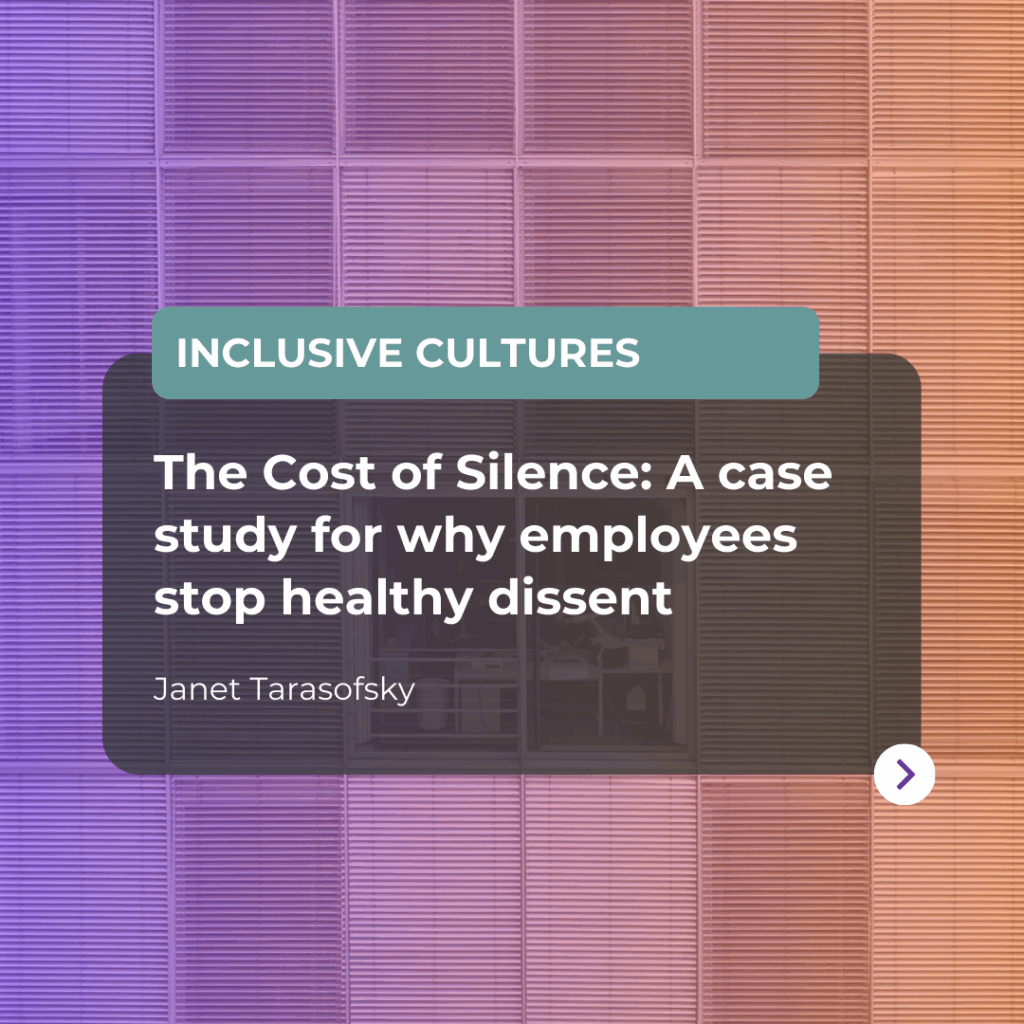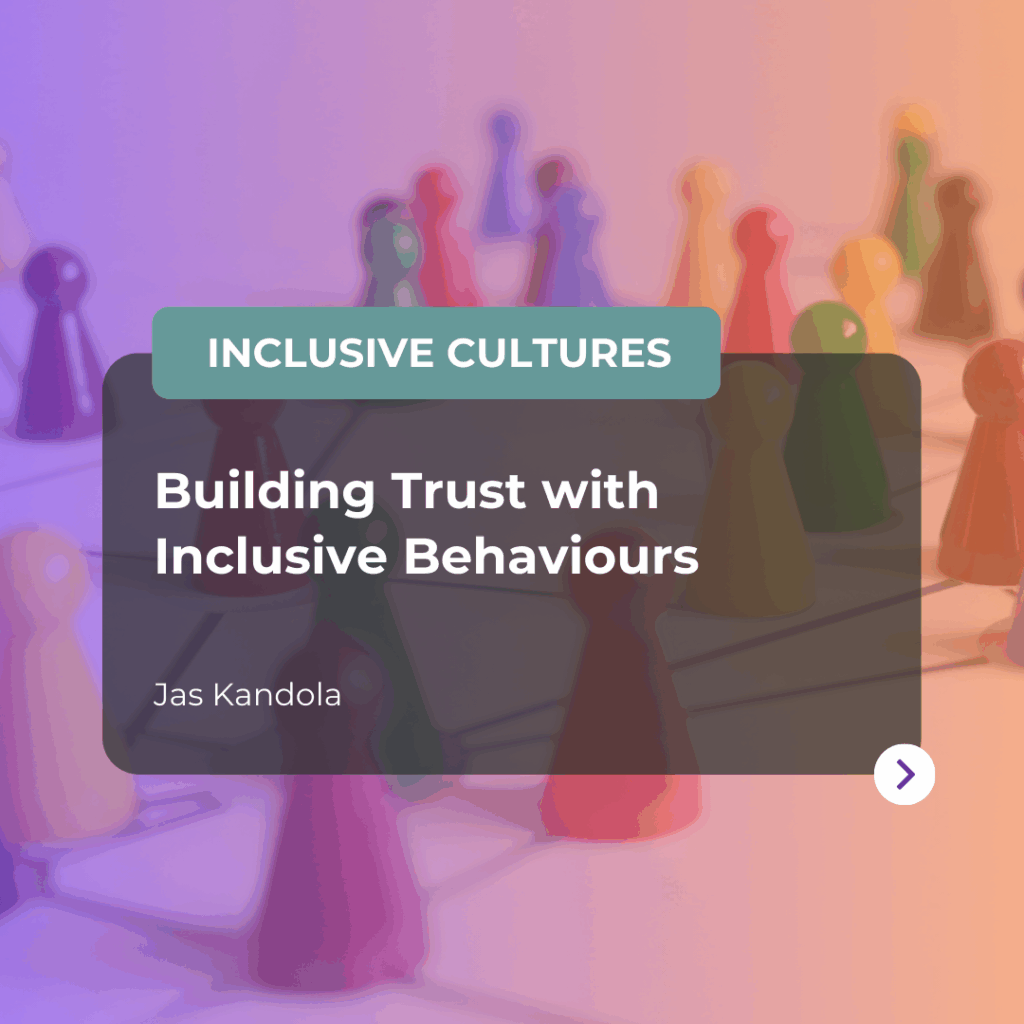The idea that racism is alive and well in our workplaces is an uncomfortable one. However, research that we have conducted at Pearn Kandola has found that this is indeed the case, with 60% of black and 42% of Asian respondents telling us that they have experienced racism at work.
You may be reading these figures and wondering how, when we have made so much progress on tackling racist attitudes, they can be so high. The problem hinges, in part, on the fact that racism has evolved. It’s true; we have made progress on tackling overt acts of discrimination. However, racism has undergone its own transformation, to such an extent that it can be difficult to even determine whether an act of discrimination is, indeed, an act of discrimination.
So, what exactly should we consider to be racist, and how should we respond?
What is considered racism at work?
Racism is often understood solely in terms of blatant, overtly hostile behaviours and attitudes. It may take the form of verbal abuse or physical intimidation, for example. The defining characteristic of ‘modern racism’ though, is that it’s subtle and – in many cases – seemingly innocuous.
Examples of subtle racism in the workplace might include BAME (Black, Asian and Minority Ethnic) people being ignored, overly criticised or having assumptions made about their abilities. The instigator might think nothing of their actions, but we shouldn’t underestimate their impact. While it may be difficult to view this behaviour in the same light as more overt racism, its can still do long-term emotional and psychological damage.
For the person on the receiving end, there’s a dilemma to face. How should they respond to an incident of subtle racism? Should they put up with it or should they call it out?
How common is racism in the workplace?
Our research clearly showed that white people experience less racism than their black and Asian colleagues. However, significant numbers of each racial group have witnessed another individual being the victim of racism. To be precise, a shocking 69% of black, 53% of Asian and 45% of white employees have witnessed a racist incident at work.
It’s clear, therefore, that we are largely aware of the presence of racism in the workplace. What’s especially concerning though, is that members of all racial groups would be unlikely to classify subtle discrimination as an act of racism. Indeed, the fact that a quarter (25%) of our respondents have witnessed a racist incident but didn’t consider it serious enough to report suggests that we must raise awareness of the real impact of modern racism.
How should you respond to racism in the workplace?
Having the confidence to stand up to racism can be incredibly difficult. Less than a fifth (17%) of our respondents said that if they witnessed an act of racism in the workplace, they would report it to HR. Two-fifths (39%) wouldn’t report it to anyone at all, for the shocking reason that they would be worried about the consequences of doing so.
It’s vital that these attitudes be addressed, if we are to ensure that workplace racism doesn’t go unnoticed, and there are actions that leaders and employees alike can take to make this a reality.
Accept there’s a problem
Race can be an uncomfortable subject. Indeed, many of us are so concerned about being racist that we will avoid prolonged contact with BAME people altogether (something known as aversive racism). If a racist incident has taken place though, the worst response is to do nothing. While many people are hesitant to report a racist incident, whether it be to HR, a manager or simply another colleague, the only way to combat racism is to make it known.
Create an environment of psychological safety
Employees who have witnessed or experienced an act of racism must feel able to discuss, validate and process it without judgement. Our research found that BAME respondents were significantly less likely to challenge a racist incident, for fear of the consequences that might befall them. We must, therefore, create psychologically safe working environments, in which BAME staff in particular feel comfortable challenging racist behaviour.
Make people accountable
To allow someone to get away with an act of racism sends a powerful message – that they can do it again. Leaders must ensure that there are processes in place to make people who have been found to commit racist acts accountable for their actions. Consequences for those who cross the line will indicate to others that racism won’t be tolerated, as well as helping to provide closure for those who have been affected.
Everyone has a responsibility to reduce and challenge workplace racism
It can be difficult to judge the best approach when you’re not on the receiving end, or when it’s unclear whether the incident you have just witnessed is, in fact, racist. There are ways in which we can all proactively tackle the issue of modern racism, though.
The least effective action in tackling racism was to report it to HR. There is clearly a serious issue which needs to be addressed here by HR professionals and the CIPD. Training and awareness must be addressed as having clear processes around how to respond to a complaint of racism. Staff should also be made aware of the process of anonymously reporting an incident. So many racist incidents go unreported because people lack the confidence to come forward.
Leaders should ensure that all reports of racism are taken seriously, and that those who cross the line are made accountable for their actions. They should also seek to help staff develop a better understanding of their own behaviour in the workplace, as subtle acts of racism are often committed without the offender necessarily realising that their actions are offensive. Researching the impact of ‘unconscious bias’ and ‘micro-incivilities’ is a great place to start.
The challenge that modern racism poses is its subtlety. Unless we are actively looking for it, it can easily fly under the radar. That’s why we all share a responsibility to stamp it out.
This article is part of our series about Racism at Work: The Danger of Indifference, our latest book. If you would like to purchase a copy, please visit Amazon.
If your organisation is looking for support to create a more inclusive culture through training for your leaders and employees, email us via info@pearnkandola.com






